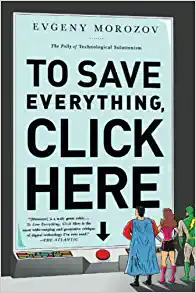ON USING THE PHRASE “REACHING
OUT”
OUT”
Michael Sean Quinn, Ph.D., J.D.*
Often in depositions and/or trial testimony—more frequently
depositions, of course, a lawyer (“L”) asks a witness (“W”) whether s/he
contacted another person for some important purpose. Here are some examples–
List A:
depositions, of course, a lawyer (“L”) asks a witness (“W”) whether s/he
contacted another person for some important purpose. Here are some examples–
List A:
- ·
Did
you contact Physician Jack about your child’s problem? - ·
Given
that were trying to negotiate a deal that day, did you call Fellow Fred? - ·
Given
that Friday was so important, did you email Edmund about it. - · Given
that you knew that the information was important to Isabella did you go over to
Isaac’s office to see if he could get the information to her, since you did know where she was to be
found?
Assume that these are all very ordinary questions. But there
are other ways to formulate them using the phrase “reach out.” Some
Examples—List B:
are other ways to formulate them using the phrase “reach out.” Some
Examples—List B:
- ·
Did
you reach out for your child [to help the child] by calling Physician
Jack? - ·
In
order to finish negotiating the deal, did you reach out and get a hold
of Fred? - ·
Given
that Friday was so important, did you reach out to Edmund? - · Did
you reach out to Isaac so that maybe Isabella could get what she needed?
Or, did you reach out to help Isabella by getting to Isaac?
What makes the most difference between Lists A and B is the
use of the phrase “reach out.”
use of the phrase “reach out.”
Those two words together create a certain rhetorical
environment. Traditionally and still customarily, the phrase “reach out”
carries within it the idea of obligatory helping, or at least obligatory
attempts to help. Here is a paradigm of
the usage, “Did you reach out to help that fellow what was having a stroke on
the floor.” Here’s another: “Did you
reach out and comfort William as he tried to overcome his weed addiction
problem.”
environment. Traditionally and still customarily, the phrase “reach out”
carries within it the idea of obligatory helping, or at least obligatory
attempts to help. Here is a paradigm of
the usage, “Did you reach out to help that fellow what was having a stroke on
the floor.” Here’s another: “Did you
reach out and comfort William as he tried to overcome his weed addiction
problem.”
The idea of reaching out carries with it the suggestion that
it is something one must do. . . something one is blameworthy for not doing.
it is something one must do. . . something one is blameworthy for not doing.
Not reaching out is somehow worse than a mere mistake, if one has the
opportunity to do so?
Maybe our linguistic culture is changing. Maybe the phrase “reach out” is expanding,
becoming ambiguous and picking up simple contacts as being cases of reaching
out. I don’t think so.
becoming ambiguous and picking up simple contacts as being cases of reaching
out. I don’t think so.
It is becoming more common place to hear this phrase used in
deposition and trial testimony. The
question becomes how to object and alert the jury, judge, or deposition reader
to the prejudicial underpinning of using this idea in the wrong contest. If
Allen makes a mistake and doesn’t call Griffin when he could, this is not as
bad as a failure by Allen to reach out, at least in lots of contexts.
deposition and trial testimony. The
question becomes how to object and alert the jury, judge, or deposition reader
to the prejudicial underpinning of using this idea in the wrong contest. If
Allen makes a mistake and doesn’t call Griffin when he could, this is not as
bad as a failure by Allen to reach out, at least in lots of contexts.
So how should an objection work? It seems like such a minor
matter, the lawyer objecting will look like an unattractive overly-picky stickler.
I think one might wish to take the chance, sometimes. At the same time, the objection must be
worded simply and minimalistically, especially if it will have to be done
several times.
matter, the lawyer objecting will look like an unattractive overly-picky stickler.
I think one might wish to take the chance, sometimes. At the same time, the objection must be
worded simply and minimalistically, especially if it will have to be done
several times.
Might this work?
OBJECTION: Misleading. Omission, mistake, or error are not the same
as failing to reach out. Reaching out is a concept of moral evaluation; the
first three, taken by themselves, are not.
as failing to reach out. Reaching out is a concept of moral evaluation; the
first three, taken by themselves, are not.
Don’t use this objection more than once. Develop a code for
doing it:
doing it:
OBJECTION: Misleading—didn’t reach out not same as made mistake.
Secret moral evaluation not evidence.
That might take care of the second time, now for the third
time:
time:
OBJECTION:
accusation of not-reach-out is
misleading and prejudicial.
accusation of not-reach-out is
misleading and prejudicial.
Any more, if even necessary, e.g., if opposing counsel does
not agree to a slowing objection should just be:
not agree to a slowing objection should just be:
OBJECTION:
Misleading, as already stated.
Misleading, as already stated.
Of course, if custom has changed so that only I and a few
others know that “reach out” has the virtue of altruism, helpfulness, and love
built into it, then none of the matters. But there are lots of people who know
what I am talking about, and that makes the misuse of the phrase a product of
ignorance or sneakiness, neither of which are lawyerly.
others know that “reach out” has the virtue of altruism, helpfulness, and love
built into it, then none of the matters. But there are lots of people who know
what I am talking about, and that makes the misuse of the phrase a product of
ignorance or sneakiness, neither of which are lawyerly.
*Michael Sean Quinn, Ph.D., J.D.
The Law Firm of Michael Sean Quinn et
The Law Firm of Michael Sean Quinn et
Quinn and Quinn
1300 West Lynn Street, Suite 208
Austin, Texas 78703
(512) 296-2594
(512) 344-9466 – Fax





Recent Comments